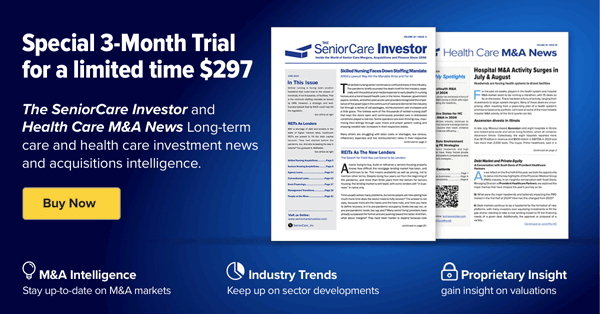The Healthcare Staffing M&A market has seen a noticeable decline in deal activity over the past few years. As of October 18, 2024, there have been 16 Healthcare Staffing deals announced year to date, which represents a 33% decrease compared to the same period in 2023 when 24 deals were announced. This downward trend is consistent with the broader decline observed over the past few years, with 29 deals in FY 2023, 35 in FY 2022 and 37 in FY 2021.
One notable aspect of the current year’s deals is the absence of disclosed purchase prices. Previous years have all had at least one purchase price disclosed. This might reflect the types of investors involved, such as privately-held companies, which are not required to disclose purchase prices, as well as a more cautious approach from buyers and sellers. The lack of disclosed prices could also reflect broader economic uncertainties and the impact of rising interest rates on deal-making activities.
Texas and Florida were the most active states for Healthcare Staffing M&A, with three deals announced in each since the start of 2024. The Miami MSA was the most active metropolitan area, with two deals announced—Health Advocates Network‘s acquisition of WorkSquare Healthcare Staffing Solutions and Knox Lane‘s acquisition of All Star Healthcare Solutions.
SVC Group emerged as the most active acquirer in the Healthcare Staffing space this year, with three deals announced in July 2024. The company acquired TheraEx Staffing in Concord, California, TeamRecruit in Orlando, Florida and OCal Solutions in Canton, Ohio. This demonstrates the company’s aggressive expansion strategy and dominance in the market.
In 2024, the primary acquirers were healthcare staffing companies acquiring other healthcare staffing companies, with only one private equity firm (Knox Lane) making acquisitions. In comparison, there were 11 private equity acquirers during 2023, and 16 announced during both 2022 and 2021. This indicates a significant decline in private equity interest, which could reflect broader economic uncertainties, rising interest rates and the upcoming election, making them more risk-averse in the current climate.
Despite ongoing labor strains in the healthcare sector, the decline in Healthcare Staffing M&A deals can be attributed to several factors. Post-pandemic, the surge in demand for temporary staffing solutions has normalized, reducing the urgency for acquisitions. Additionally, economic uncertainties and rising interest rates have made both buyers and sellers more cautious, impacting deal-making activities.
The adoption of technology-enabled service models has also shifted the landscape, allowing healthcare workers more visibility and self-service options, thus reducing reliance on traditional staffing firms. This technological shift means that only staffing providers with advanced capabilities and strong retention metrics are attractive, further narrowing the pool of viable acquisition targets. Combined, these factors help explain the downturn in M&A activity despite persistent labor challenges.
The healthcare industry has also been grappling with severe clinician shortages, clinician burnout and a lack of new graduates entering the workforce. These long-term trends have placed immense pressure on healthcare delivery organizations, necessitating outsourced labor solutions. However, the gradual improvement in healthcare system capacity and the normalization of bill rates have contributed to a more cautious approach to M&A activity. Buyers have become more selective, focusing on quality staffing providers with proven management and recruiting teams, high client and clinician retention and technology-enabled capabilities.
While the market remains resilient, the cautious approach from buyers and sellers is likely to continue in the near term. As the industry continues to adapt to these challenges, it will be essential to monitor broader economic trends and technological advancements that could impact future M&A activity.


